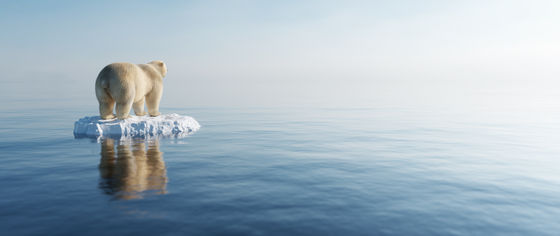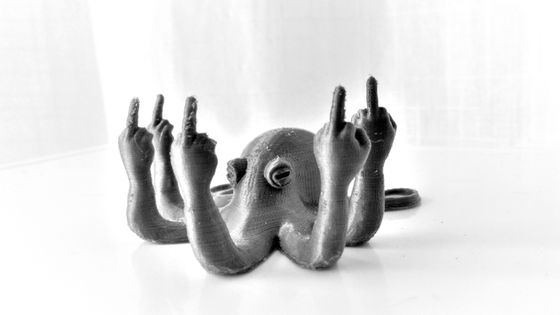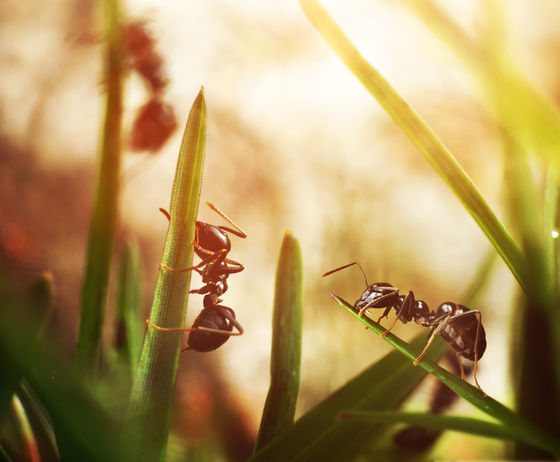The authors of 'Afterman' explain what kind of creatures will build civilization on the earth next to human beings such as 'birds', 'octopuses' and 'ants'.

The
When humans are gone, what animals might evolve to have our smarts and skills? | Live Science
https://www.livescience.com/what-animals-will-fill-human-niches
According to Martha Reiskin, a molecular ecologist at North Carolina State University, modern-day understanding of gene sequence analysis techniques and evolution allows for fairly accurate short-term predictions of future animal ecology. It is said that it has become. For example, even if humans suddenly become extinct one day, the effects of climate change will not disappear immediately, so animals on Earth will continue to be adaptable to drought, while thousands of polar bears, penguins and other animals have adapted to the polar regions. It is expected to remain in a harsh environment for years.

In addition, geologist and science writer Dougal Dixon told Live Science that the concept of '
The most typical examples of this phenomenon, sometimes referred to as convergent evolution , are dolphins and fish. Mammals dolphins and fish are completely different organisms, but they have similar streamlined bodies and fins to live in the common environment of water.
Just as dolphins and fish have similar fins, animals that acquire wisdom and skills on behalf of humans bend their dexterous hands like humans, especially in the opposite direction of their fingers. It is expected to have the equivalent of a 'thumb' that will help you to hold it. For this reason, primates such as chimpanzees and bonobos are the first to make white feather arrows as the successors to humankind. It has been observed that these animals are still making and using tools.
However, in the event of an extinct event for humankind, primates with similar ecology to humankind may also become extinct. Birds are the focus of attention. Birds are animals that emerged when dinosaurs went extinct 66 million years ago, with crows and parrots being extremely intelligent.
For example, parrots have been found to be able to learn how to use and make tools from their peers , and to play golf with tools.
In fact, research shows that parrots have the level of cognitive ability to 'play golf with tools' --GIGAZINE

In addition, some birds, such as the Sociable weaver that lives in Africa, build nests like apartment houses and live together.
Some researchers point out that human successors may be in the ocean. Jennifer Mather, a marine biologist at the University of Lethbridge, Canada, told Live Science: 'In the first place, intelligence is about being influenced by the environment to modify one's behavior. In that sense, on earth, human beings. The next smartest animal would be the octopus. '
A 2020 study that trained octopuses by showing them real and white balls on the screen found that 'octopuses can be distinguished from real and virtual,' and another study 'octopus is a nest.' It is also known that the living environment will be actively improved, such as by throwing away trash from the holes and blocking the entrance with shells. ' Furthermore, it seems that even the underwater city 'Octlantis' where multiple octopuses live in groups has been confirmed off the coast of Australia.

by
However, since octopus is an aquatic organism, it has been pointed out that it may be difficult to prosper on land like humans. This is because the blood of many vertebrates uses iron, which binds oxygen efficiently, while the blood of octopus and its relatives uses copper. Copper also binds to oxygen, but it is less efficient than iron, so octopus can only live in oxygen-rich waters. From this, Mather believes that it will be difficult for octopuses to move to the ground in the future and build cities on behalf of humankind.
Mather predicts that it is not octopuses but social insects such as ants and termites that build society on Earth on behalf of humans. Insects have existed on Earth for 480 million years and have undergone various evolutions to fill every niche on Earth.

Among the insects, there are leaf-cutting ants that cultivate fungi and run agriculture, and a type of termite that nests underground is said to perform long-distance communication using vibration. From this, Live Science commented, 'Ant and termite societies are probably more like human civilizations than any species on the planet.'
However, it is not clear whether these creatures will develop the same high level of intelligence as humans, as it will take a tremendous amount of time for them to evolve. 'It's virtually impossible to predict evolution on a long-term scale, because mutations, mass extinctions, and the emergence of bottleneck effects that undermine diversity due to population decline,' said Ricekin. Because there isn't. '
Moreover, when it comes to building a human-like society or city, it becomes even more difficult to predict. 'It is possible that the next most prosperous animals after humanity will build cities, but it will not be possible for millions of years of selective pressure to evolve in that way,' Mather said. 'I don't think nature makes the same mistake twice,' Dixon said.
Related Posts:







